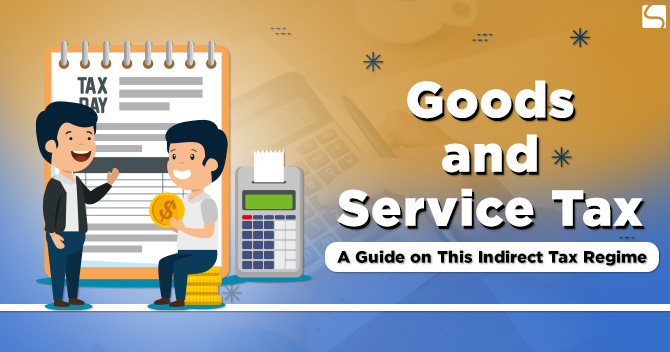Significance of Advance Ruling under GST

Swarit Advisors | Updated: Aug 30, 2017 | Category: GST
An advance ruling helps the applicant to plan his activities in cases where he is liable to pay GST in advance. It brings certainty in determining tax liability as the ruling given by the authoring is binding on the applicant as well as the Government.
Advance Ruling means the ruling in the form of the decision given by the authority or the appellate authority to an applicant on matters specified under section 97(2) or section 100(1) of the CGST Act, 2017.
Table of Contents
Benefits of Advance Ruling
- It is inexpensive and the procedure is simple and easy.
- It provides certainty and transparency.
- It can be used as a tool to avoid expensive and long-drawn litigation at a later date.
Objectives of Advance Ruling
- It provides certainty to the taxpayer in advance regarding the computation of tax liability in relation to the activity proposed to be undertaken by the applicant.
- It attracts Foreign Direct Investment
- Reduce Litigation and inexpensive
- Transparency
Matters included in Section 97(2) or Section 100(1) for which advance ruling can be sought:
For Section 97(2)
- Classification of any goods or services or both.
- Applicability of any notification issued under the CGST Act,2017.
- To determine the time and value of the supply of goods or services or both.
- Admissibility of Input Tax credit paid or deemed to be have been paid.
- Determination of GST Liability.
- Registration requirements.
- Any other supply of goods or services or both which are included within the meaning of the term.
Section 100(1)
Section 100(1) provides that applicant, jurisdictional offices concerned officer aggrieved by the advance ruling pronounced can file an appeal to the Appellate Authority.
The time limit for Advance Ruling
There is no time limit for which the advance ruling sought will apply. It has been clarified that the advance ruling shall apply to the period when the facts, law or the situations supporting the original advance ruling is unchanged.
However, an advance ruling can be held as void as into if the Advance Ruling authority finds that the advance ruling was sought by the applicant by fraud or misrepresentation of facts. In such a case the Advance ruling authority shall revoke the advance ruling provided (but excluding from the date from which the advance ruling was provided until the date it has been declared void by the Advance Ruling Authority). An opportunity of being heard shall be given to the applicant before declaring it void.
Authorities and Jurisdiction under Advance Ruling
Authority for Advance Ruling (AAR)
The authority for an advance ruling is constituted under the provisions of State Goods and Service Tax or Union Territory Goods and Services Tax Act shall be deemed to be the Authority for Advance Ruling in respect of that state or territory under the CGST Act, 2017.
- Appellate Authority for Advance Ruling (AAAR)
The appellate authority for an advance ruling is constituted under the provisions of State Goods and Service Tax or Union Territory Goods and Services Tax Act shall be deemed to be the Appellate Authority for Advance Ruling in respect of that state or territory under the CGST Act, 2017.
- The AAR and the AAAR are basically not constituted under the Central Act. Thus it implies that the advance ruling given by AAR and AAAR is restricted to the jurisdiction of the concerned state or the union territory.
Applicability of Advance Ruling
The Advance ruling sought is binding only on the applicant and the concerned officer.
Procedure for obtaining Advance Ruling
- Any person desirous of obtaining advance ruling shall make an application to the AAR in the prescribed form.
- Upon receipt of the application, the AAR will send a copy of the same to the Jurisdictional officer under whom the applicant falls.
- The AAR shall examine the application and may also call for additional records.
- The AAR shall also give the applicant an opportunity of being heard.
- If the AAR is satisfied with the relevant records he shall pass the order to admit or reject the application
- Application for an advance ruling shall not be admitted in the cases where the question raised is already pending or is required to be decided in any proceeding.
- If the application is accepted, the AAR shall pass his Advance Ruling within ninety days of receipt of application. He shall also ask for further documentation for clarity.
- If the application is rejected the AAR has to specify the reason for rejecting the application
- If the opinion differs between two members of AAR they shall refer the matter to the AAAR If the members of AAAR are also not able to form an opinion then it shall be deemed that no advance ruling shall be sought in that case.
- The law provides an authority to the AAR and AAAR to modify, rectify the mistake from the record within sixty days from the date of order. Such mistakes noticed can be rectified by the AAR on his own or by any application received from the applicant However if the rectification involves an increase in tax liability or deduction of Input tax credit limit, the applicant shall be given an opportunity of being heard.
An appeal against the order
An appeal against the order of AAR can be filed by the following persons
- The applicant aggrieved by the finding of the AAR shall file an appeal with the AAAR.
- The jurisdictional officer of the CGST/SGST does not agree with the finding of the AAR shall make an application to the AAAR.
- The application shall be filed within thirty days from the receipt of advance ruling.
- The appeal is to be made in the prescribed form and manner.
- The AAAR shall after hearing both the parties pass an order with ninety days of filing the appeal.
- If the members of AAAR disagree at any point in time it shall be deemed that no advance ruling had been sought in respect of the question under appeal.
Also, Read: Relation between GST & Start-ups.














